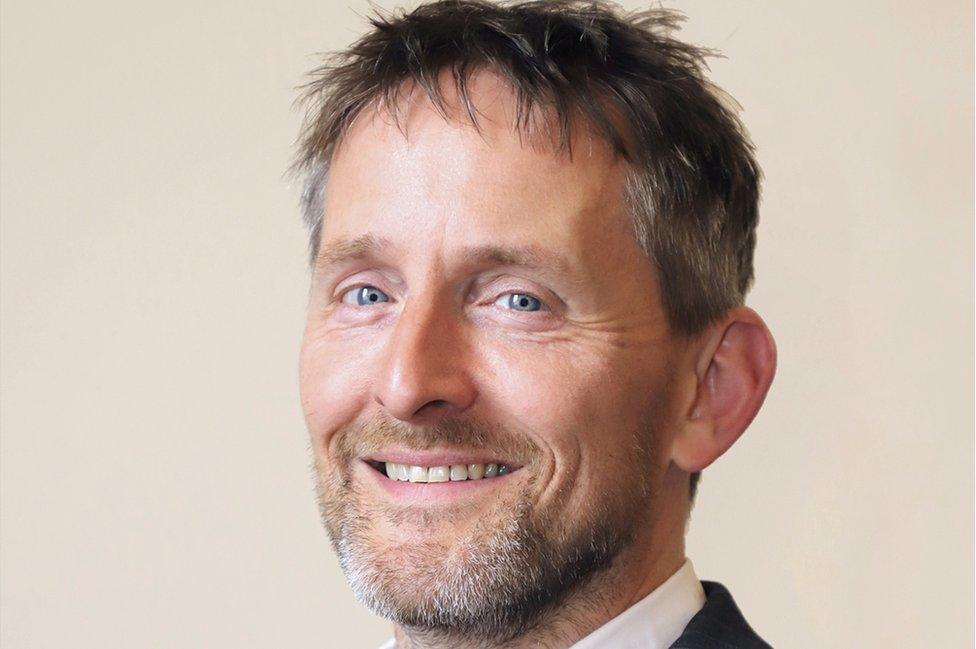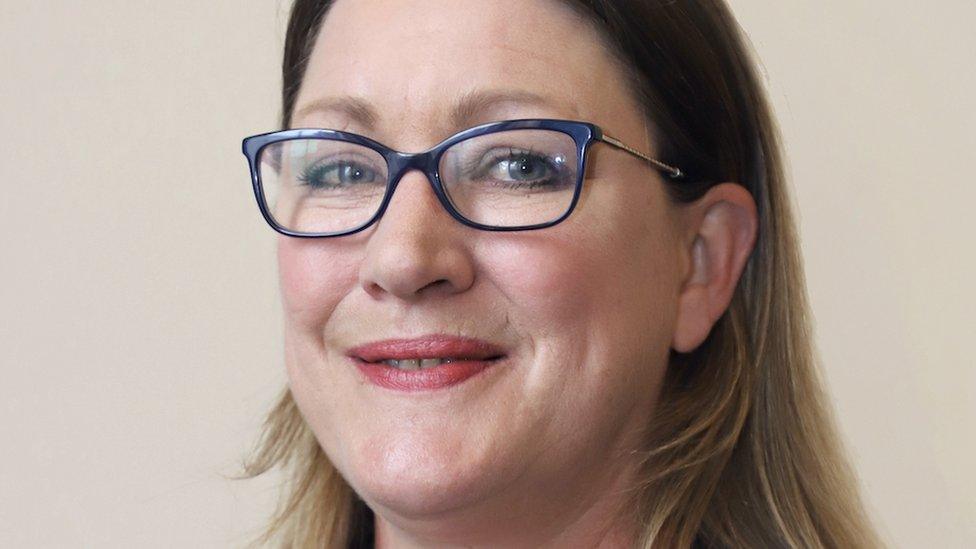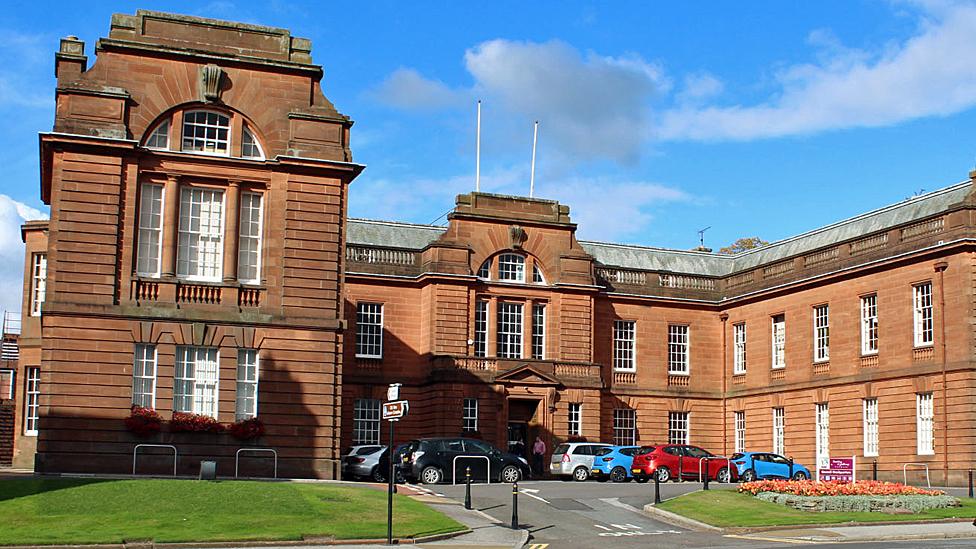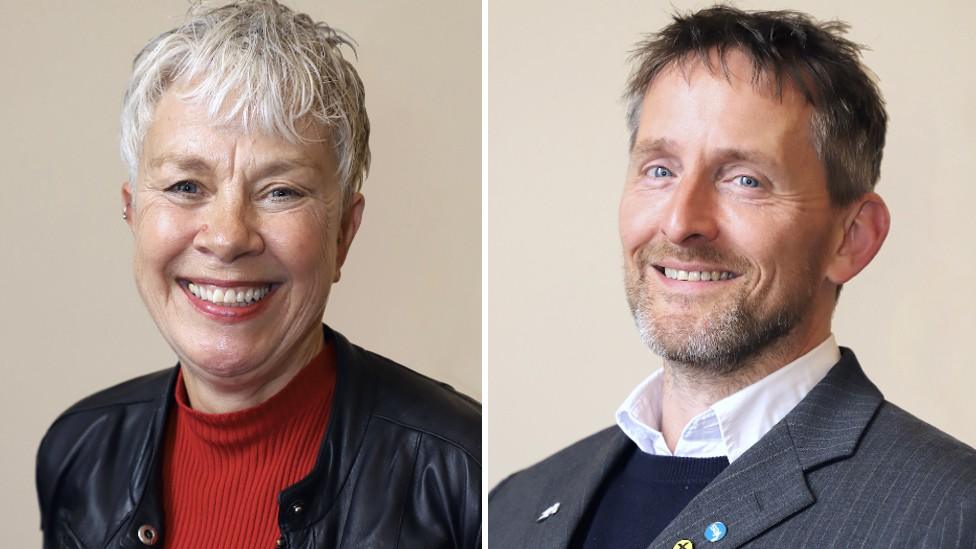Dumfries and Galloway Council leader to step down after budget vote lost
- Published

Stephen Thompson said his position was untenable as a result of the vote
The SNP leader of Dumfries and Galloway council is to step down after losing a budget vote.
Opposition Conservative plans were approved which Stephen Thompson said left his position untenable.
The ruling SNP-Independent administration could not find enough support for its plans which would have put council tax up by 6.5%.
Instead, Conservative plans for an increase of 6% were voted through by 19 votes to 16 with eight abstentions.
Three different budgets were tabled to the full council - one by the ruling administration, one by the Labour group and another by the Conservatives.

The ruling coalition on the local authority was reshuffled earlier this month with Labour leaving the leadership due to "clear political and policy differences".
It said it would still work with other parties on common policy issues.
However, it could not find sufficient support for its own budget plans - nor would it support rival spending proposals.
The three budgets were taken to the vote with the Conservative one ultimately winning out.
It will see council tax on a band D property rise by about £75.
"I'd like to thank everybody who has supported me in this role," said Mr Thomson after losing the budget vote.

Gail MacGregor described her group's spending plans as a "good, competent, prudent budget"
"It has always been a privilege and occasionally a pleasure."
In a statement, the Labour group said it was disappointed that the Conservative budget had passed as a result of independent councillors "failing to support their own budget".
It said it had repeatedly tried to secure agreement for its plans which would have pegged the council tax rise at 5%.
Conservative group leader Gail MacGregor said the administration had been in disarray for "weeks possibly months".
"Hopefully today's events will bring a bit of stability to the council with a good, competent, prudent budget," she said.
The independent group said it was "hugely disappointed" with Labour's "intransigence and petty politicking".
It said their "sole and destructive actions" had led to the collapse of the "progressive alliance" which had been running the council.
No political group has enough seats on the 43-member authority for outright control on its own.
The Conservatives have most councillors with 17, followed by the SNP's 11, eight for Labour, five independents, one Lib Dem and one non-aligned.
Negotiations will now have to begin to try to form a new administration.
Related topics
- Published22 February 2023

- Published3 February 2023
